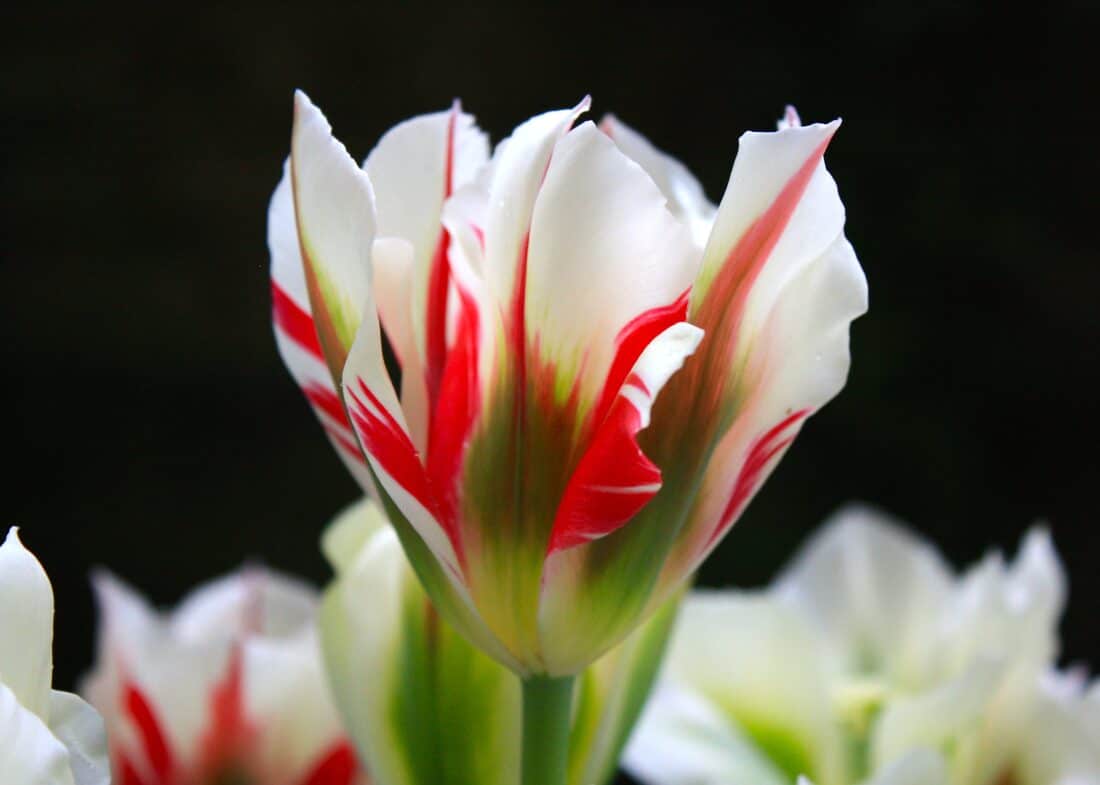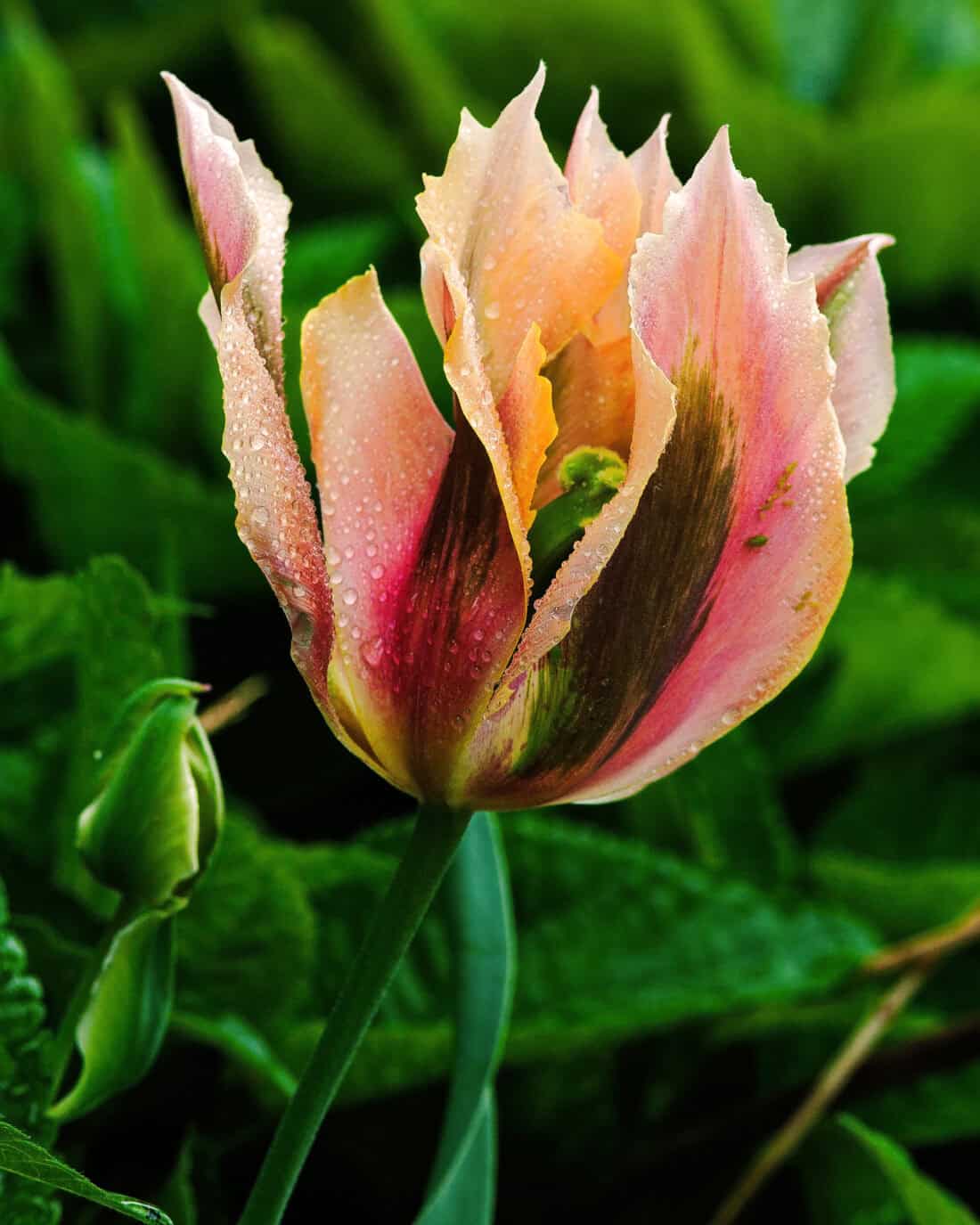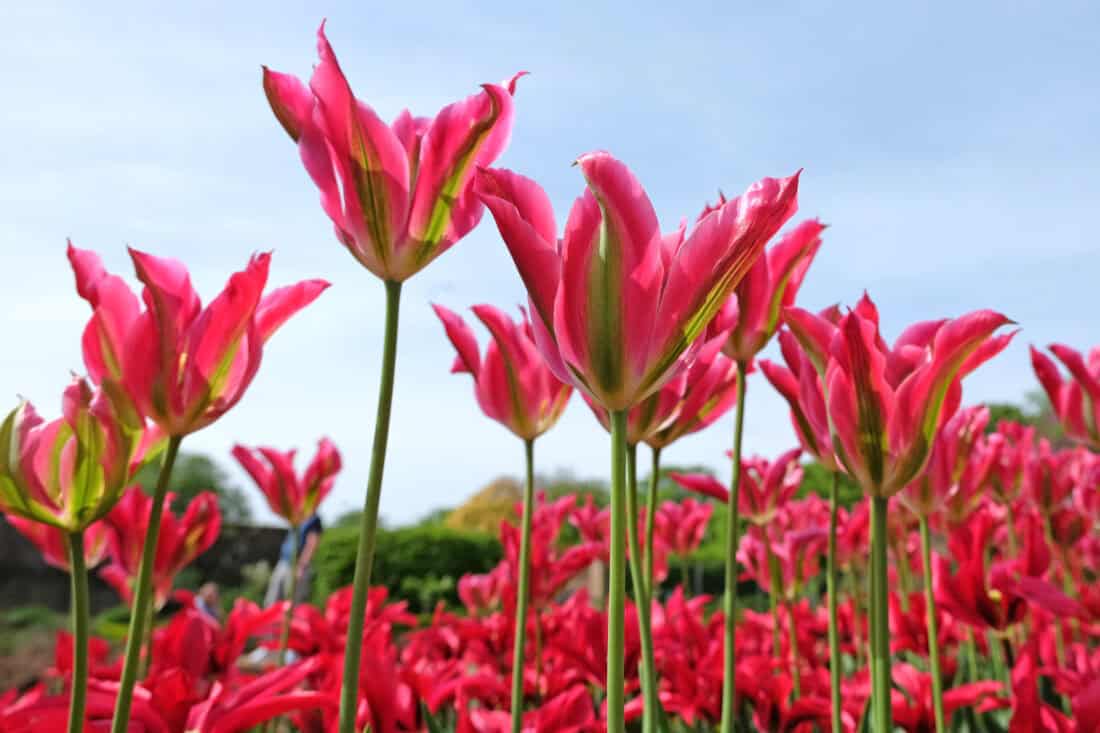
Have you started planting your spring bulbs? We started planting last week at Coastal Maine Botanical Gardens and hope to be finished by early next week.
This year, we are going all out and planting close to 35,000 spring flowering bulbs, most of which are tulips. We began designing our tulip displays in June and July when we had to get our orders into the major bulb wholesalers.
Digging through all of the catalogs with the bulb pictures and descriptions can take quite a while and paring down a list to just the tulips you need is difficult because we want to try them all! We want to have color in the spring for our guests while, at the same time, introducing some new and out-of-the-ordinary plants to the gardens.
In years past, we have used solid-colored tulips, multiple-colored tulips, and even some color-blended tulips (a planting mix where several shades are mixed together into one bag or box for a multi-color flowering mass).
What is a Viridiflora Tulip?
After researching new and unusual tulips, I came across a really cool group with green in their flowers. Any of the tulips that have green in their petals are classified into the group Viridiflora. The Viridiflora or green tulips come in yellow, red, pink, yellow, orange, and various shades in between, all with some green in the flower.

I have never really been fond of fancy or frilly tulips like the parrots, but I am over the moon for the Viridifloras. The various colors contrast nicely with the green stripe. Along with being eye-catching, the flowers are reported to be one of the longest lasting of cultivated tulips.
Some of the cultivars that we are planting this week include: ‘China Town’ (pink, white, and green), ‘Golden Artist’ (yellow, red/orange, and green), and ‘Spring Green’ (white and green).

One tulip that I really wanted to add this year was ‘Brooklyn’ but we were not able to find it available in the United States. ‘Brooklyn’ is one of the new all-green tulips whose flowers spiral up into a cluster, thus resembling an artichoke. I am guessing that some people will love it and some will hate it but at least it will catch people’s attention and get them interested in the diversity of tulips and this group.
Let us know which tulips you are really excited about planting this fall. Which ones are you looking forward to seeing come out of the ground and flower in the spring? Also, do you know where we can find ‘Brooklyn’ viridiflora tulip bulbs?
– Rodney













